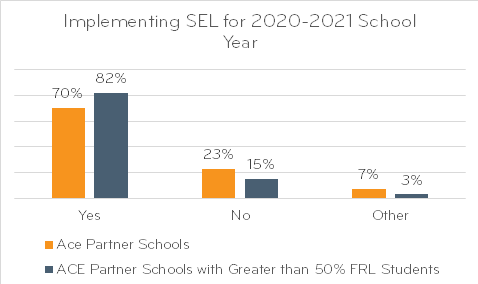Digging deeper into the school survey data report, specifically, to see how our partner schools who serve 50 percent or more free and reduced lunch (FRL) students were faring. While most of the numbers are very similar to the full dataset, there was some data showing how FRL students, and schools, have experienced more detrimental effects and why what we do is so very important to low-income families.
The key academic findings for these FRL heavy schools are:
-
- a greater learning loss during the typical summer slide
- the COVID slide is expected at 3 full months as compared to 2.5 months for the entire network
- the COVID recovery is expected to take 3.3 months as compared to 2.8 months for the entire network
- five-percentage points less likely to meet class requirements during remote learning
- parents were less effective in assisting with remote learning with a
-
- 10-percentage point gap in grades 3 – 5
- nine-percentage point gap in grades 6 – 8
- five-percentage point gap in grades 9 – 12
-
Schools reported greater impacts on social and emotional well-being. The key findings show:
-
- a five-percentage point greater impact on coping skills
- a three-percentage point greater impact on relationship skills
- a three-percentage point greater impact on emotions
Eighty-two percent of these schools will be implementing social emotional learning (SEL) into the 2020-2021 school year. This is a 12-percentage point increase as the whole network.
The chart below shows the typical summer slide. Schools report FRL students experience more learning loss over a typical summer.
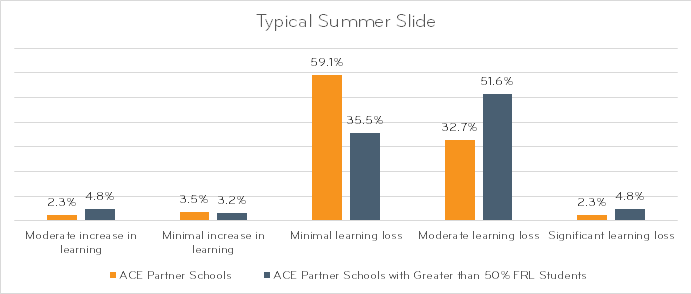
For the COVID slide, these same partner schools expect a half month more learning loss and a half month longer recovery. This is a significant burden on schools and the students who have fallen further behind than normal.

The COVID slide is to be expected given the five-percentage point decrease in students meeting class requirements as compared to all ACE partner schools.
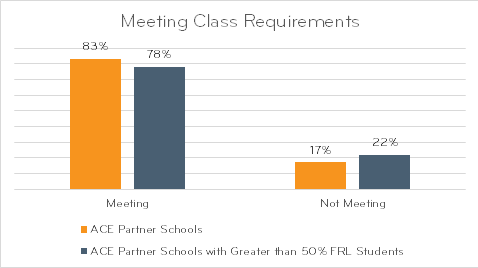
While parents were willing to assist their children with remote learning, schools with more FRL students say parents are less effective in their assistance. Specifically, in 3 – 5 grades, there is a 10 percentage point gap, a nine-percentage point gap in grades 6 – 8, and a five-percentage point gap in grades 9 – 12.
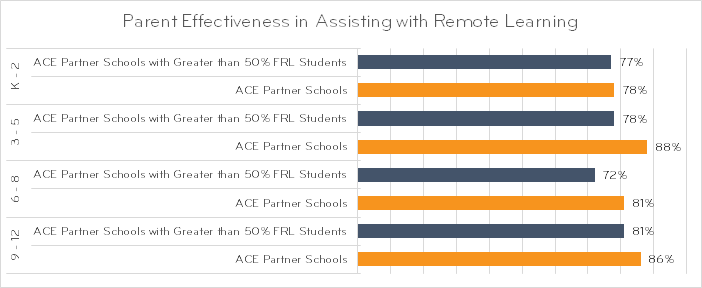
The social and emotional impact of COVID-19 has hit the FRL students harder. This is evidenced by schools reporting greater impacts in coping skills (five percentage points), relationship skills (three percentage points), emotions (three percentage points), and learning (two percentage points).
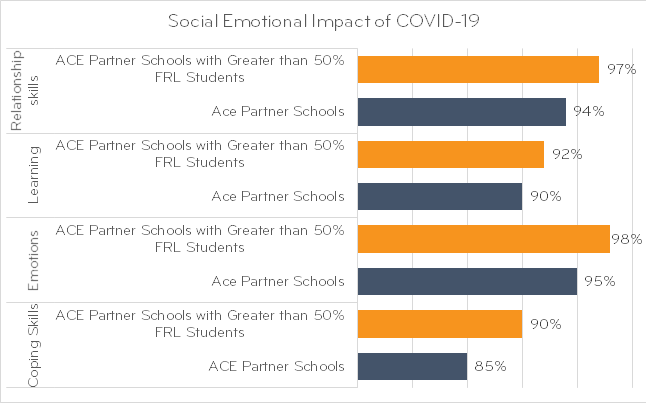
Eighty two percent of schools serving a larger percentage of FRL students are planning to implement social emotional learning (SEL) into the 2020-2021 school year whereas 70 percent of all ACE partner schools are planning additional SEL implementation.
